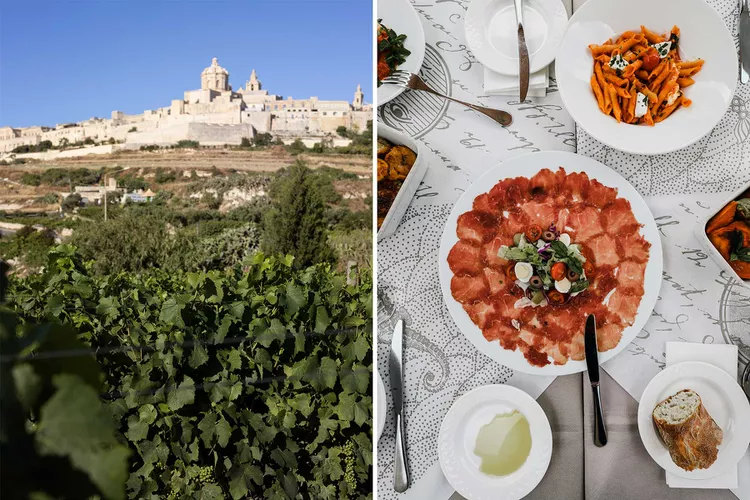Overview of Maltese Wine Culture
Introduction to Malta’s Wine Heritage
Grapes have been cultivated in Malta for centuries, yet the wines of this Mediterranean archipelago have remained relatively unknown—until now. The scent of lemon trees hung in the stillness, while olive groves swept over the slopes. Giant pear cacti appeared like rabbit ears above the ground, creating a picturesque backdrop for wine enthusiasts. As excitement filled the air, Maria Spiteri invited us to experience the delights of Maltese wine.
Exploring Ta’ Mena Wine Estate
Spiteri recently took over the wine estate Ta’ Mena on Gozo, the second-largest island in the Maltese archipelago. Her family began growing fruit and vegetables on this land in the 1960s; since 2002, they have expanded into making olive oil and wine. The original farm shop, run by Spiteri’s mother, offers local specialties such as bitter-orange marmalade and kunserva helwa—a dark concentrate of sun-dried tomatoes. Visitors can also find farm produce at Ta’ Philip, a restaurant specializing in meats cooked overnight in a wood-burning oven.
The Delicata Winery Experience
Despite being one of the world’s smallest wine-making countries, Malta produces an incredible range of wines, including merlot, cabernet sauvignon, syrah, and chardonnay, among others. There are also indigenous grape varieties, such as ġellewża (a red) and Girgentina (a white). Following my introduction at Ta’ Mena, I visited the larger island of Malta to explore more, starting at Delicata in Paola. Here, I discovered unique wines and the fascinating history behind local grape varieties.
Dining at Ion Harbour
After sampling wines at Delicata, I headed to Ion Harbour, the rooftop restaurant at Iniala Harbour House. The panoramic views of Valletta’s harbor were breathtaking, enhanced by a delicious local chardonnay that accompanied my meal. The culinary creations of chef Alex Dilling were innovative, featuring local seafood and exquisite flavors, making for a delightful dining experience.
A Visit to Marcasar Vineyard
The following day, I drove to Siġġiewi to visit Mark Cassar at Marcasar vineyard. Here, I was treated to a unique tasting experience, featuring a variety of local cheeses and cold cuts. Cassar’s commitment to traditional winemaking techniques, such as fermenting in Georgian qvevri (earthenware pots), showcases the depth of Malta’s wine culture. His best-selling natural wine, Sacrum, even incorporates hemp into the fermentation process, highlighting the island’s innovative spirit.
As I traversed the vineyards of Malta, I pondered the journey of these exceptional wines and the future they hold for both local and international palates.
A version of this story first appeared in the September 2022 issue of iBestTravel under the headline “Bearing Fruit.”




